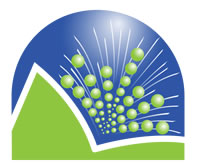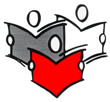The Western Australian Adult Literacy Council
The Western Australian Adult Literacy Council (WAALC) was established with the purpose of ensuring that all adult West Australians have the opportunity to develop the literacy and numeracy skills required to actively participate in our increasingly complex society.
Latest News
National Skills Agreement
The National Skills Agreement is a 5-year agreement between the Australian and state and territory governments that reflects a commitment to ensure that no Australian is left behind or held back as the economy transitions and adapts to structural change. The Agreement includes agreed reforms, one of which is to improve foundation skills training capacity, quality and accessibility.
As part of this reform, the Australian and state and territory governments agreed to work together to develop a National Foundation Skills Strategy (the Strategy) to address issues of critical importance to the future of Australia and the wellbeing of individual Australians. This Strategy sets a shared direction for all governments for adult foundation skills nationally over the next decade and reflects our shared commitment to build foundation skills levels among Australian adults.
The Strategy is designed to enhance the lives of people who struggle every day to read and write, do maths or use computers – key foundation skills. We know that building these skills can improve people’s lives, creating new ways of engaging in communities and workplaces. Importantly, it can lead to opportunities for further education and training – helping to build the skilled workforce of the future and drive our state, territory and national economies.
Related Reading;
National Skills Agreement. Overview of the new National Skills Agreement National Foundation Skills Strategy
Professional Learning Survey 2024 – 25
Dear members and friends. WAALC is now planning professional learning events for 2025 and are interested to know your areas of interest.
Thankyou for taking the time to complete this survey
Please Click to complete a short Survey
Board at the Library
On Level 2 of the State Library of Western Australia, discover a cosy space to relax and enjoy board games and puzzles. With a selection of classic games to play and a collection of books about games to borrow, this is the perfect spot to meet up and discover a new pastime.
Challenge your friends to a board game, collaborate over a puzzle or play a game of solitaire. Our game selection includes chess, mah-jong, Scrabble, Monopoly, Catan, Cluedo, jigsaw puzzles, large print playing cards and much more.
Choose your own adventure and stop by Board at the Library !

WAALC is proud to be associated with the State Library of Western Australia

At MAX, our vision is to support people from different backgrounds, cultures and communities to deliver life-changing opportunities and build a better future. Through our Reconciliation Action Plan, we are committed to ensuring we achieve this for Indigenous customers and communities.
We understand that Diversity and Inclusion is essential to the success of any business. At MAX, we believe that recognition and celebration of diversity helps us support our customers better and allows us to build an inclusive culture, where all our people are comfortable to be themselves.
Keep up to date with adult literacy and numeracy in Australia
Australian Council of Adult Literacy
The Australian Council of Adult Literacy (ACAL) publishes a regular free newsletter with news and opinion pieces about adult literacy and numeracy. Add yourself to their email list: you don’t need to be a member of ACAL.
Sign up
FS Teach
FS Teach Facebook page includes quite a lot of news but has the added benefit of hundreds of members across Australia who can answer your questions about foundation skills.
FS Teach Facebook
Adult Learning Australia
Adult Learning Australia offers more generic adult education focused information including webinars, a journal and undertakes an advocacy role.
More
Need a service for an adult to improve their reading writing or mathematics?
WAALC acknowledges Aboriginal and Torres Strait Islander People as the Traditional Custodians of the lands, skies, and waterways across Australia.
We pay respect to Elders past and present and acknowledge the continuation of Cultural, spiritual, educational and literacy practices of Aboriginal and Torres Strait Islander Peoples and the continuing connection to country and Culture






